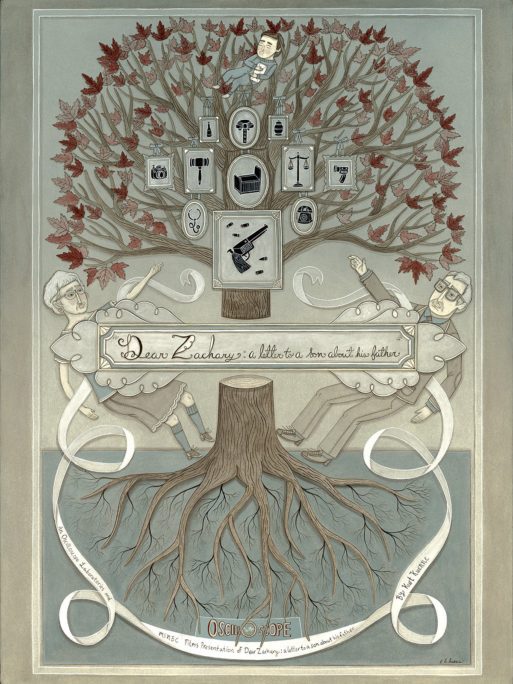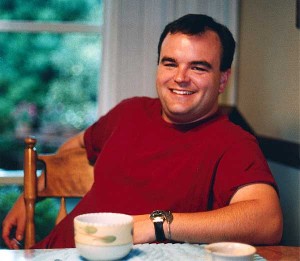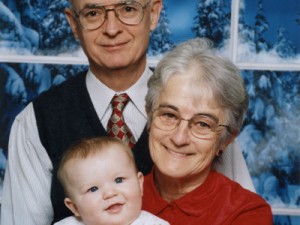 From the start, Dear Zachary: A Letter to a Son About His Father is a one-of-a-kind documentary. You have probably seen nothing like it before, and won’t see anything like it again.
From the start, Dear Zachary: A Letter to a Son About His Father is a one-of-a-kind documentary. You have probably seen nothing like it before, and won’t see anything like it again.
It follows filmmaker Kurt Kuenne as he tries to make sense of his best friend’s murder. Kuenne doesn’t just create a biography of Andrew Bagby’s life. Instead, he speaks to Bagby’s unborn son, Zachary, who never got to meet his father.
You settle in with this film thinking you know what you’re in for, but you’d be wrong. In reality, this documentary is two films in one.
WARNING: Some spoilers for the film below. This review does not reveal the end of the film, but does contain details about the first half of the documentary.
The first half of the film shows touching scenes of Andrew Bagby and Kurt Kuenne making low-budget movies in their backyards as teenagers. It follows Bagby as he becomes a successful medical school student, taking up residency in a hospital. While working as a resident, he meets Shirley Turner, and the two begin a tumultuous romantic relationship. They fight constantly. At the urging of his friends and family, Andrew Bagby breaks up with Turner.
Here’s where the film takes its first dark turn: Andrew Bagby is found dead, and police accuse Shirley Turner of his murder.
Bagby’s death comes as a shock to everyone in his life, and it’s enough on its own to send his parents and Kurt Kuenne into despair. Yet, through the agony of losing someone they loved, they have a glimmer of hope: Shirley Turner announces she is pregnant with Bagby’s son. Zachary Bagby is born at the peak of his family’s mourning.
In the first part of this powerful film, Kuenne speaks directly to baby Zachary. He shows him everything he would have ever wanted to know about who his father was. Kuenne shows Zachary how Andrew’s jokes would send an entire room into fits of laughter. Kuenne doesn’t dwell on the fact that Zachary’s mother is accused of killing his father. Instead, he makes the movie a love letter to Zachary from a father who never got to send it.
What begins as a story to a child about his father turns into something emotionally eviscerating.
Things don’t stay this bittersweet for long. By far the most gut-wrenching part of the film is still to come. What begins as a story to a child about his father turns into something emotionally eviscerating. When the film reaches the halfway mark, at its peak, the floor is pulled away from everyone. What happens throws Andrew’s family and friends into complete shock and anguish.
Revealing what happens in this documentary would ruin the film for anyone who wants to watch it. Kuenne’s expert storytelling in this film makes it worth watching in its entirety.
As a grandparent, how do you share child visitation with your grandson when his mother is on trial for his father’s murder?
This film touches on subjects not many people have ever imagined, let alone tackled in a film. How do you keep a person’s legacy alive? What happens when the person you loved is murdered, and the person accused of murdering him is pregnant with his baby? As a grandparent, how do you share child visitation with your grandson when his mother is on trial for his father’s murder?
This documentary is not for sensitive hearts. People who have children will find it especially hard to watch. Yet this film sparks conversations no other film in this genre has. As you’ll see if you watch it, the film has even incited political change between two countries.
Dear Zachary changes from a story to a child about his late father into something all of us can find equally horrifying and heart-rending. It’s a deeply sad and triggering story, but it is also a rare example of raw emotion being shared with complete strangers. The Bagbys and Kurt Kuenne have opened their hearts up to us to create meaningful change in the world.

 “Dear Zachary: A Letter to a Son About His Father” by Kurt Kuenne
“Dear Zachary: A Letter to a Son About His Father” by Kurt Kuenne




 First the Wealth Gap, Now the U.S. Has a Growing Health Gap
First the Wealth Gap, Now the U.S. Has a Growing Health Gap
 How to Comfort A Dying Loved One
How to Comfort A Dying Loved One
 Our Annual Seven Holiday Gifts for Someone Who Is Grieving, 2024 Edition
Our Annual Seven Holiday Gifts for Someone Who Is Grieving, 2024 Edition














